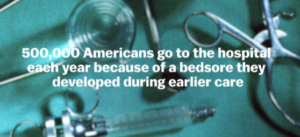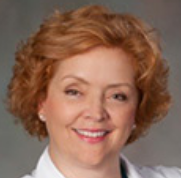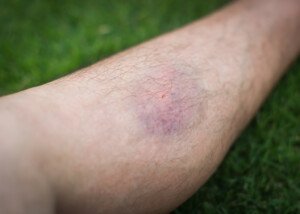
Medical errors are the No. 3 killer of Americans; so many are highly preventable.
The reason that “medical errors” does not make the list of the top 10 killer of Americans is simple.
For instance, a medical error may result in cardiac arrest. This cause of death then gets lumped into the category of “heart attack” or “heart disease.”
Another example is that a medical mistake can cause a fatal systemic infection. This is placed under the “sepsis” category.
Since medical errors can cause a variety of fatal conditions, these “causes” of death get categorized under that condition.
Medical Mistakes Third Leading Cause of U.S. Deaths
Johns Hopkins patient safety experts have calculated that over 250,000 deaths every year are due to medical errors.
The full report is in the May 3, 2016 British Medical Journal.
So why isn’t there a category for medical error if this is a leading cause of death in the U.S.?
When someone dies of a heart attack, the autopsy reveals this very quickly.
If this heart attack was triggered by a medical mistake, it can take several years of litigation before all the data then finally reaches a court case where a verdict is determined or the defendant settles.
But this only partially explains why the “top 10” causes of death lists don’t include medical errors.
How to Prevent Fatal Medical Errors
There are measures you can take to highly minimize the odds of a lethal medical mistake happening to you, says Teri Dreher, RN, CCRN, an award-winning RN patient advocate and pioneer in the field of private patient advocacy.
Dreher, a critical care nurse for 30+ years, is a former cardiovascular nurse clinician for Wisconsin Heart and Vascular.
#1. “Prepare a proactive medical summary of your health conditions, allergies, physicians and all medications,” begins Dreher.
“Your family needs to know where this documentation is kept in the event of an emergency.
#2. “Consult a trusted healthcare professional for recommendations when looking for a new doctor,” says Dreher. “Don’t rely on word of mouth, online reviews or advertisements.”
#3. “Avoid hospitalizations if possible…really!” This rule is especially critical for the elderly. “Infections run rampant in hospitals,” continues Dreher.

“According to the Centers for Disease Control and Prevention, on any given day, one in 25 hospital patients has a hospital-acquired infection.”
# 4. “Organize shifts among relatives to ensure the patient is always accompanied if hospitalized.” Of course, this is not always possible for some individuals.
This is why it’s crucial for you to have a strong basic knowledge of medicine to potentially catch oversights!
One day I was hospitalized for elective surgery and needed to be accompanied to the bathroom. I returned to my bed and the CNA then exited the room.
I looked at my legs. The pneumatic compression device that helps prevent post-surgical blood clots had not been turned back on!
I was not able to reach the button so I called for assistance.
# 5. “Pay attention, be observant, take notes and provide information readily while in the hospital,” says Dreher.
“Ask questions, but courteously. Keep a record of the name and shifts of nurses and doctors.”
Don’t think for a single moment that if you ask questions, you’ll insult the doctor. People won’t hesitate to drill their mechanic for why the mechanic wants to do this and that to their car.
These same people won’t question their doctor about what’s being done to their body!
Think of yourself as a paying customer when you’re receiving medical care.
You have every right in the world to get a full explanation of what’s going to be done to your body and what follows.
# 6. “Don’t hesitate to ‘speak up for clean hands,’ to quote the CDC,” says Dreher.
“Cleanliness helps prevent infection.” Request that your medical staff wears gloves or uses foam hand sanitizer before touching you.”
Also wash your hands frequently. Make sure your visitors do so too, and it won’t hurt to request that visitors refrain from kissing your face.
“And ask cleaning staff to regularly sanitize objects that others touch.”
# 7. “Speak up—politely—if you think something is wrong,” continues Dreher. “Listen to your gut: Doctors and nurses are human and can make mistakes.”
If you feel your needs aren’t being met, ask to meet with the hospital’s risk management or patient advocate representative.
# 8. “It’s best not to chat with the nurse when he or she is dispensing your meds,” says Dreher. “Distraction can lead to medication mistakes.”
Know your pills as well. Ask your nurse to review every one of them before ingestion.
# 9. “Exercise vigilance especially during admission and discharge process,” says Dreher. The most likely period for a medical error is during admission and discharge.
# 10. “Obtain copies of your written discharge instructions.” Don’t just take them; make sure you understand them. This includes medications and removal of bandages.
Dreher points out that in a recent study, a shocking 54 percent of discharged patients could not recall accurately their follow-up instructions.
So many medical mistakes can be prevented by being more proactive about your care and your loved-one’s care!
 Teri Dreher, RN, CCM, is the founder of NShore Patient Advocates. A critical care nurse for 35+ years, she’s also the author of “How to Advocate for Yourself & Your Loved Ones,” available on Amazon.
Teri Dreher, RN, CCM, is the founder of NShore Patient Advocates. A critical care nurse for 35+ years, she’s also the author of “How to Advocate for Yourself & Your Loved Ones,” available on Amazon.
 Lorra Garrick has been covering medical, fitness and cybersecurity topics for many years, having written thousands of articles for print magazines and websites, including as a ghostwriter. She’s also a former ACE-certified personal trainer.
Lorra Garrick has been covering medical, fitness and cybersecurity topics for many years, having written thousands of articles for print magazines and websites, including as a ghostwriter. She’s also a former ACE-certified personal trainer.
.





































